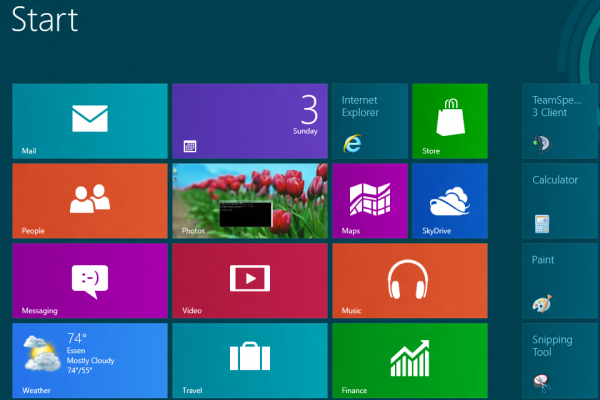Microsoft should follow Apple's lead and ditch the disc in Windows 8
Microsoft plans to simplify Windows 8 sales by eliminating the full version of the operating system and focusing on upgrade and "system builder" editions. The change likely means that Windows 8 will be cheaper by and large to obtain the most consumers.
Pundits Paul Thurrott and Mary Jo Foley spoke of the move, citing sources on their weekly Internet radio show "Windows Weekly". The move follows another from April where the company announced Windows 8 would only be available in standard and Pro editions, aimed at making the purchasing process much easier.
Betanews' own sources are unable to confirm at this time whether Microsoft plans to use a similar download/boxed copy strategy it has with the upgrade with the System Builder version. With the upgrade, if you don't mind downloading Windows 8, you can get it for $40. Those that want a hard copy from a retail outlet will pay a $30 premium to that price.
Microsoft's Already Got The Message -- Somewhat
The Redmond, Wash. company already makes download versions of Windows 7 available to consumers through the Web-based Microsoft Store. That said, there is no discount: the price is the same whether you have it shipped to you on a DVD (or purchase it at retail), or download it immediately.
Microsoft has changed its strategy with the Windows 8 upgrade. Now it is further changing that by apparently getting rid of the "full" version of Windows. There's a potential here for Microsoft to significantly reduce its expenses while still maintaining its margins.
The only difference between the OEM version of Windows and the full copy sold by retailers is the full version also includes support through Microsoft. Given that a majority of those people building their own computers are already tech savvy and likely wouldn't need the support, getting rid of that version is not going to affect many customers.
There's also another big cost savings in adopting a model similar to the upgrade options Microsoft has given its customers and that's distribution. By relying on a predominantly physical media-based model, Microsoft has quite a bit of overhead invested in production and distribution of those discs.
Do We Really Need Discs Anymore?
I know you remote and rural readers will complain that I'm way off base, but the disc truly is an outdated software distribution model. Modern broadband Internet connections now have the ability to download files the size of the Windows operating system in a matter of an hour or two. Delivery via download only costs Microsoft the price of the bandwidth used to transfer it to the customer.
It is for this reason that Apple has been able to successfully slash the end cost of an upgrade to $30 (and soon $20 with Mountain Lion). Overhead is minimal using a predominantly download-based distribution model, and still allows the Cupertino, Calif. company to meet its margins.
Think it's hurting Apple? That's doubtful -- a look at the company's latest financials show strong revenues and healthy profit margins. But there's also another positive effect, and that's adoption.
In just a year of release, Mac OS X Lion is now installed on 40 percent of Macs currently in service. While some pundits (including my colleague Joe Wilcox) say that is low given Lion's $30 price tag, I think that's fantastic. Compare it with Windows 7 adoption, and you'll see just how well Lion is doing.
Windows 7 launched in October 2009. By the following October, it was only on 20 percent of all Windows PCs. And this was considered one of Microsoft's more successful operating system launches.
Fixing The Upgrade Malaise
I'll argue here that by making Windows 8 more accessible and using a predominantly download-based model -- and not only doing that but offer a significant cost savings over purchasing the physical media -- Microsoft will be able to solve what is a continuing problem for Windows: upgrading.
The company needs to find ways to get users to adopt its new releases faster. There's something to be said when your most recent version of Windows (now three years old) is just now matching the market share among Windows-based PCs as Windows XP, now 11 years old. Having so much of your install base on what is now an old and increasingly useless platform slows innovation overall.
While Microsofties hate to follow in Apple's footsteps -- I often wonder if its more denial that Apple does things right, and for too long Microsoft's been doing it wrong -- this is one place where Redmond needs to take a page from Cupertino. Get into the 21st Century and ditch the disc, Microsoft.
The entire Windows system will (eventually) thank you.
UPDATE: Microsoft sources told Betanews late Friday that internal marketing is still moving towards the full version being sold, so any changes in strategy have not yet been made at the marketing level.

